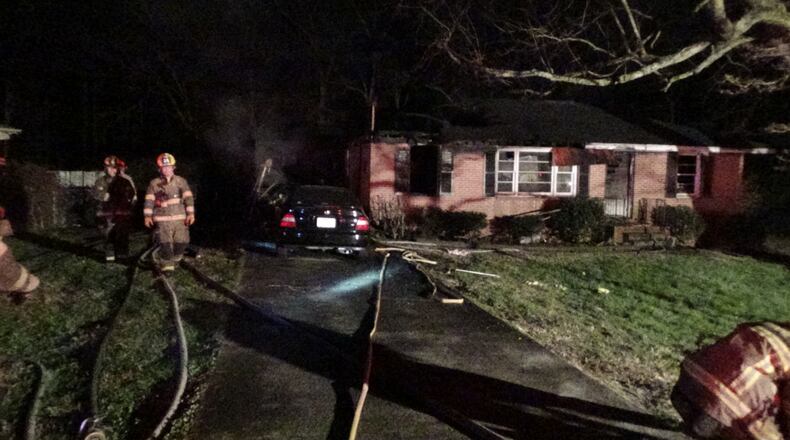In the wake of multiple fires in metro Atlanta, Gwinnett County fire Capt. Thomas Rutledge reminded people they can take steps to prevent and survive home fires.
There have been at least four fires — three of them fatal — in the metro area in the past three days. Most involved some missed step in fire prevention strategies.
Gwinnett County firefighters investigated a suspected accidental house fire early Friday that displaced two women and killed several cats and dogs in a home in the 500 block of Morningside Drive near Lawrenceville, Rutledge said.
The home had a smoke detector, but no working batteries in it, he said.
Earlier this week, a Gwinnett man lost his wife, two daughters and dog in a fire near Tucker on Tuesday.
The blaze appears to have started in a first-floor living room near an electric-powered reclining couch and fireplace that was in use during the blaze, Rutledge said. That home was equipped with one smoke detector on the second floor.
In another incident Wednesday, a man died after a space heater positioned too close to his recliner started the fire in his Paulding County mobile home. And on Thursday, a blaze led to the death of an unidentified man in the 2800 block of Esom Drive near Snellville.
“The best advice is not to wonder what you would do if a fire breaks out in the home,” Rutledge said. “Instead, know what to do. Look for ways to prevent and survive a home fire by following fire safety rules.”
LITTLE KNOWN FIRE TIPS
• You won’t be able to see in a fire due to the smoke. By staying low, you might be able to see the floor, baseboards and furniture legs to give a point of reference for escape. Also, the coolest air will be on the floor.
• When asleep, you lose a sense of smell. The smell of smoke will not wake up the house.
• Time is your enemy in a fire. You have about three minutes or less to escape before getting trapped.
SMOKE ALARMS
• Install and maintain a working smoke alarm on every level of the home, in the hallway outside the sleeping area and in each of the bedrooms.
• Test smoke alarms once a month by pressing the test button.
• Change the battery twice a year (birthday or holiday) or when you hear the unit chirp due to a low battery.
• Consider installing a long-life battery smoke alarm that incorporates a worry free battery for up to 10 years.
• Replace smoke alarms after a 10-year period.
FIREPLACES
• Have the fireplace and furnace serviced annually by a qualified professional.
• Never leave a house or go to bed with a fire burning in the fireplace.
• Keep combustibles a safe-distance away from the fireplace.
About the Author
The Latest
Featured


